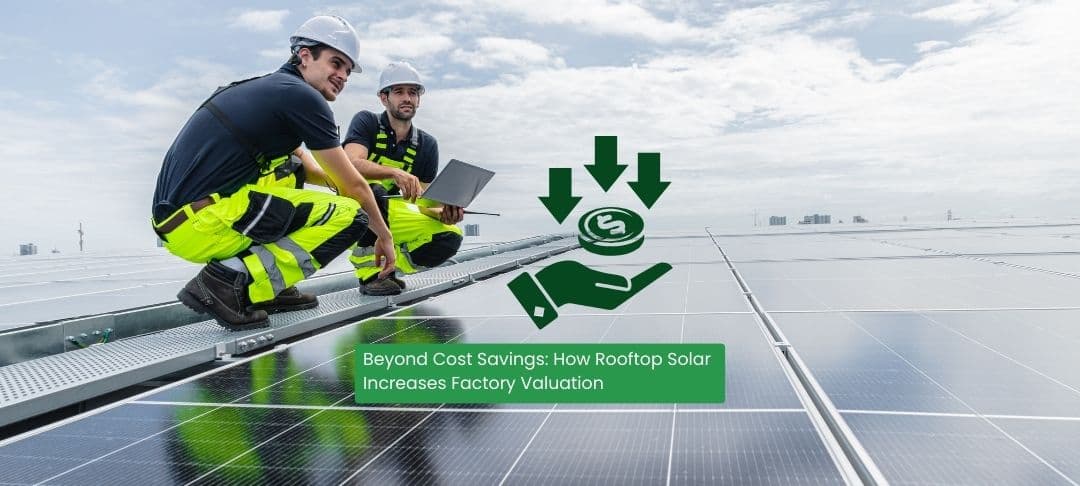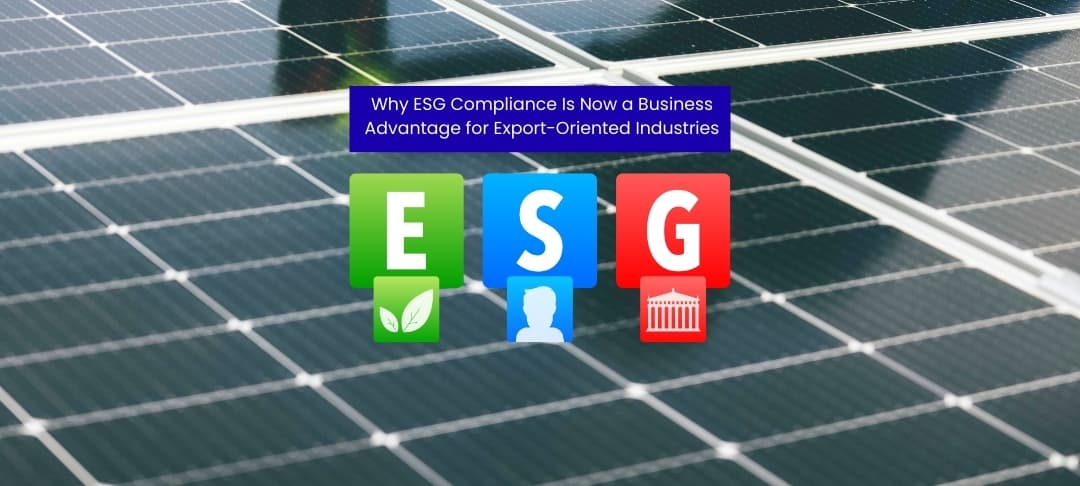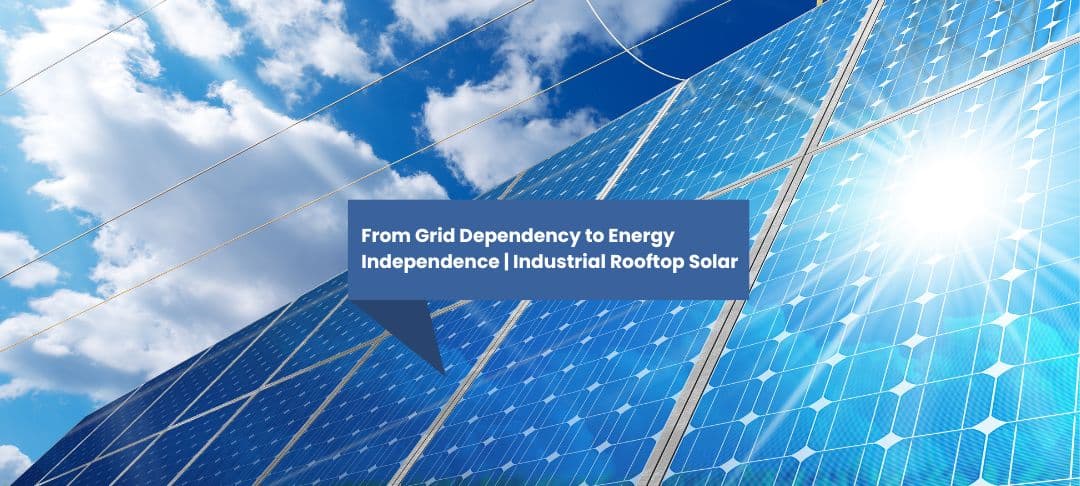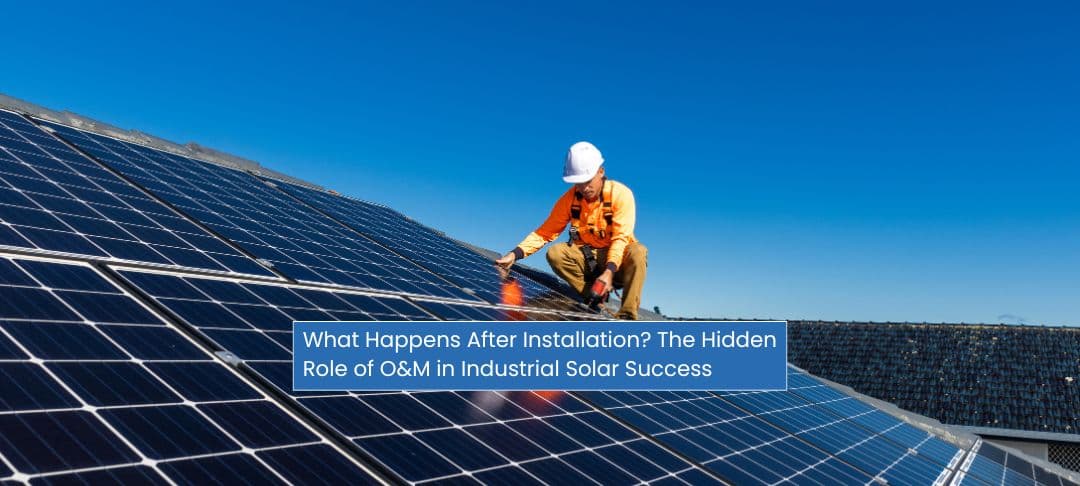Solar Myths Debunked
Published at - November 30, 2024
As the world moves towards sustainability, the solar energy sector has experienced unparalleled growth. Renewable energy development firms like Solaric Global, which has a significant presence in Bangladesh and Singapore, are important contributors to this sector. With a focus on large-scale industrial rooftop solar projects, firms like Solaric work hard to provide factory owners with financial support and customised engineering solutions, easing the switch to solar energy.
1. Why Debunking Myths is Important
Understanding and resolving misunderstandings about solar energy will encourage more people to embrace this renewable energy source. Solar energy has the ability to reduce carbon emissions, save money, and offer dependable power globally. Sharing accurate information is critical to increasing its acceptance.
Yet, myths and misconceptions surround the solar energy industry despite its growing popularity. People are frequently deterred from using this clean, green power source because of these misconceptions.
2.Popular Solar Myths
In this post, we dispel ten widespread myths regarding solar panels and offer clarification to businesses, homeowners, and anybody else with an interest in solar energy!
Solar Panels Do Not Function on Cold or Cloudy Days
The idea that solar panels are useless in cold or overcast conditions is one of the most widespread misconceptions. Even though they work best in direct sunshine, solar panels can still produce power in overcast weather, albeit less effectively. Leaders in the use of solar energy include nations like Germany, which frequently sees cloudy skies. Clouds scatter sunlight, which is still sufficient for solar panels to capture and convert into energy. Solar panels operate using electrons. Excess heat can generate resistance, which reduces efficiency. Cold weather, on the other hand, diminishes resistance, allowing the panels to run more efficiently. Also, excess energy produced during sunny days can be stored in solar batteries, providing power availability during overcast or snowy conditions.
Solar Energy is Too Expensive
Many people assume that solar systems are too expensive, however, this is no longer the case. According to the National Renewable Energy Laboratory (NREL), the cost of solar panels has decreased by more than 70% in the last decade. In 2010, the average cost of solar electricity was more than $2 per watt, but by 2020, it was closer to $0.85 per watt, making it more inexpensive than ever before. Furthermore, installation costs have fallen due to the proliferation of experienced installers and increased competition in the solar business, resulting in lower pricing. One of the most important variables that can make solar energy more inexpensive is the variety of incentives, rebates, and tax credits provided by governments around the world. For example, in the United States, the federal government provides a 30% investment tax credit (ITC) to households that install solar panels, greatly lowering the initial cost. Many states and municipalities provide additional financial advantages, which differ depending on where you live. This makes solar energy more accessible to both homeowners and businesses. Countries such as Germany, Japan, and Australia have also granted government subsidies to help solar energy compete with traditional electricity sources. These incentives can minimise the payback period of an investment in solar, often lowering it to 5-10 years, depending on the location.
Solar Panels Require Constant Maintenance
The concept that solar panels require extensive upkeep is untrue. In actuality, solar panels require minimum maintenance. Periodic cleaning to eliminate dirt and debris, as well as an occasional examination, is usually sufficient. Most solar panels are built to last and withstand adverse weather conditions, with warranties typically lasting 20-25 years.
Solar Panels Can Damage Roofs
Some homeowners are concerned that installing solar panels would destroy their roofs. Solar panels, when placed by an expert, can actually safeguard the roof by acting as a weatherproof barrier. Furthermore, reliable solar providers use suitable installation techniques, preserving the roof and potentially increasing its lifespan.
Solar Panels Are Inefficient
Early solar methods were inefficient, but modern solar panels have greatly improved. Today's photovoltaic (PV) panels have efficiencies of 15% to 22%, and continuous research is pushing these figures even higher. This means they convert a significant amount of sunlight into usable energy, making them an extremely efficient source of power. Solar Energy is Not Reliable
Some sceptics say that solar energy is unreliable since it is dependent on sunshine. However, combining solar panels with battery storage solutions resolves this issue. Solar batteries store extra energy generated throughout the day, providing a consistent supply at night or during overcast weather. Furthermore, grid-tied solar systems provide continuous electricity by pulling from the grid as needed.
Solar Panels Are Not Environmentally Friendly to Produce
Critics frequently point out that producing solar panels requires energy-intensive processes that emit pollutants. While this is somewhat accurate, studies demonstrate that the environmental impact of solar panel manufacturing is negligible when compared to the emissions saved over their lifetime. A typical solar panel balances the energy consumed in its manufacture within 1-2 years and continues to produce clean energy for decades.
You Must Own Your Home to Go Solar
Another fallacy is that solar panels are only for homes. Renters and multi-family dwelling residents can also profit from solar energy through community solar projects. These initiatives enable several people to share the energy generated by a single solar project, making solar more accessible to a broader audience.
Solar Panels Reduce Property Value
Contrary to popular assumption, solar panels frequently boost property value. Buyers are drawn to homes with solar installations because of their lower energy expenses and environmentally friendly appeal. According to studies, homes with solar panels sell faster and for more money than non-solar properties, indicating that solar is a sound investment.
3.Real-world Success Stories in Debunking Solar Myths
Real-world success stories are extremely effective in refuting solar myths. Here are examples of how towns and individuals have embraced solar energy while addressing popular misconceptions:
Germany's Solar Success in Cloudy Climates
"Solar panels don't work in cloudy weather."
Germany, a country not recognised for its sunny weather, has been a global leader in solar energy adoption. Despite its northern latitude and cloudy environment, Germany generated around half of its electricity from renewable sources, with solar playing a major role. With advanced solar technology and efficient energy storage devices, solar electricity can be harnessed even in less sunny places.
India's Affordable Solar for Rural Communities
"Solar energy is too expensive."
The Indian government and organisations such as SELCO Solar have provided affordable solar lights to rural families. Solar-powered lighting systems, for example, have replaced kerosene lamps in Karnataka, resulting in significant savings for families.
Low-income people can gain access to solar energy through subsidies, microfinance, and community activities.
Kenya Has Solar-powered Schools and Clinics
"Solar is not reliable for critical infrastructure."
In Kenya, solar arrays power schools, clinics, and water pumping systems in rural areas. Solar lighting in Nairobi's Kibera slum illuminates streets and residences, dramatically increasing safety and educational achievements.
When correctly designed, solar systems are strong and reliable enough to provide important services.
Myths About Solar Irrigation for Farmers in Bangladesh
"Solar isn't powerful enough for agricultural or industrial use."
Bangladesh has constructed hundreds of solar irrigation pumps, allowing farmers to lessen their dependency on expensive diesel pumps while also maintaining agricultural water availability.
Solar energy is scalable and versatile, making it suitable for both industrial and agricultural applications.
South Korea: Floating Solar Farms
"Solar requires too much land."
South Korea constructed one of the world's largest floating solar farms on the Hapcheon Dam reservoir. It generates renewable energy without infringing on agricultural or residential property.
Innovations such as floating solar farms show how land limits can be addressed.
Australia: Lower Bills for Everyday Families
"Solar panels don't save money."
Australia boasts the world's greatest solar penetration rate, with rooftop panels on more than 30% of residences. Families in Sydney and Melbourne report saving hundreds of dollars on their annual energy bills, with some even selling excess energy back to the grid.
Solar investments can result in significant cost reductions, particularly through feed-in tariffs and net metering.
California: Reliable Power During Wildfires
"Solar panels can't provide energy during power outages."
During California's 2019 wildfires, homeowners with solar panels and battery storage systems maintained electricity while grid-connected households experienced disruptions. Tesla Powerwalls and comparable battery devices allow solar users to store excess energy and use it in an emergency.
Combining solar with energy storage increases resilience and energy independence.
Myths About Solar Plants in Chile's Atacama Desert
"Solar energy isn't scalable for national grids."
Chile's Atacama Desert is home to some of the world's largest solar installations. More than 18% of the country's electricity comes from solar, which helps it meet its aim of becoming carbon neutral by 2050.
Solar energy can be scaled up to satisfy the demands of national grids and big populations.
Solar energy is not only an environmentally responsible solution but also a practical and cost-effective alternative to existing energy sources. By dispelling these prevalent fallacies, we seek to enable people to make informed decisions about using solar energy. As the world transitions to renewable energy, Bangladesh is a fertile ground for solar energy implementation. Solaris Global, a leading solar energy industry in Bnagldesh works hard to lead Bangladesh in the renewable energy revolution. Recognising the truth about solar can inspire us to a safer, greener planet.



